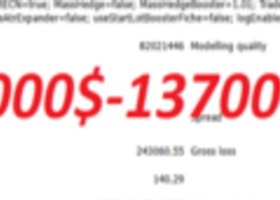G7, Brexit and Fed Rates - Rabobank
Jane Foley, Research Analyst at Rabobank, suggests that usually the FX
market is left disappointed by G7 communiques and the FX market tends to
be only one part of the agenda that faces finances ministers and
central bankers of some of the world’s leading economies.
Key Quotes
“That said, this year’s meetings come at an interesting time. Not only
does the summit give the US Treasury a platform to ramp up its pressure
on currency wars and lessen the scope for Japanese authorities to
intervene against any future bouts of USD/JPY weakness, but it may add
give an indication as to how the G7 is weighing up the risks surrounding
a Brexit.
It is very possible that the greatest legacy of the UK referendum will
not be its impact on the UK economy but its effect in highlighting the
political fissures within the EU. A Mori poll published on May 9
suggested that 45% of Europeans in researched countries (Belgium,
France, Germany, Hungary, Italy, Poland, Spain and Sweden) think that
their own nation should hold a referendum on its EU membership.
Although the UK referendum EU membership is the only one scheduled,
nationalistic rhetoric and voter disgruntlement are evidence in several
EU counties. Arguably anything other than a runaway vote in favour of
the Remain camp in next month’s UK referendum will leave EU coherence
exposed to further attacks from within. This suggests that this week’s
indication from opinion polls that the ‘Remain’ camp could be extending
it lead, may have implications well outside the UK’s borders.
Earlier this month the Fed’s Lockhart suggested that the UK’s EU
referendum “loom large”. The Fed’s Williams also referred to the outcome
of Brexit suggesting that “we have to take that into consideration in
terms of how it affects the US economy and the outlook”. Although the
minutes of the April FOMC make clear this the Fed has laid out US
growth, inflation and labour market developments as the primary triggers
for a June rate hike, it is possible that a Brexit could give them
reason to pause. It follows that the greater the chances of a ‘Remain’
vote, the smaller the international risks facing the US economy. On a
June Fed rate hike we expect EUR/USD to test the 1.10 level. If this is
followed by a Brexit would see risk that EUR weakness could extend to
EUR/USD1.08.”



